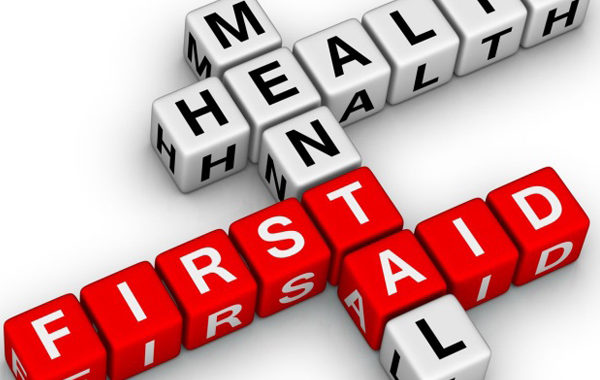By: Joanna Mazzella, CoveCare Center Undergraduate Student Intern
It is just as important to be prepared to help in a mental health crisis as it is to learn CPR to be prepared for a physical emergency.
The goal of Youth Mental Health First Aid is to educate people in the community…parents, teachers, friends, neighbors, caregivers, family members, peers and others …. on the warning signs and risk factors to look out for in a youth in distress. It prepares them with strategies for identifying and helping a young person who is struggling and equips them with information on where to go for help when it is needed. And just as importantly, this program stresses that recovery is possible and that, with help, those who are struggling with mental health, emotional or substance use challenges can get better and stay better if they have the help they need to realize their own strengths.
Those developing a mental health issue or substance use disorder often feel that they are alone. The pressures they are experiencing and the stressors that are driving them to thoughts or actions which may be harmful to themselves or others are frequently invisible to those around them, and finding a way to express their feelings is frequently impossible. It can be dark; it can be confusing; it can be isolating.
This is particularly true of adolescents who are still in the process of developing the skills required to cope with the challenges that life presents. Adolescents often have a hard time seeing into the future and imagining their life getting better. Suicide is the number two leading cause of death in people ages 15-19 years old. Because of this, it is important to be able to identify how a young person is feeling early in the crisis.
The Youth Mental Health First Aid program provides education about various types of mental health issues including: depression and mood disorders, anxiety disorders, trauma, psychosis and substance use disorders. It identifies the many warning signs that can signal an emerging problem such as changes in behavior, changes in motivation, changes in appearance and other key indicators. Sometimes the changes can be quite apparent, but at other times they may need more attention to assess. Risk factors can be assessed in early adolescence, and knowing what to look out for could save a life.
Adolescents need to feel that they are important and cared for; it is important that they have someone who understands them and cares about them. When faced with someone in distress, knowing the right thing to say is an issue that most of us struggle with. This program teaches the best way to comfort and listen to someone when they need you the most. It is important to know how to approach someone who poses a suicide risk or demonstrates other symptoms of emotional distress.
The program also outlines a 5 step ‘Mental Health First Aid Action Plan’ that includes instruction on how to assess for risk of suicide or harm, how to listen non-judgmentally, how to give reassurance and helpful information, how to encourage someone to engage professional help, and how to encourage self-help. It uses hands on activities to provide a better understanding of the world through an adolescent’s eyes. Using role playing, scenarios and other activities, participants can practice various intervention techniques that may be used with someone going through a panic attack, suicidal thoughts, other types of self-injury, acute psychosis, reaction to a traumatic event or an overdose.
Putnam County Department of Mental Health’s Dawn Mullins and CoveCare Center’s Community-Based Services Coordinator, Christina McGuigan, have taught this program to mental health professionals, staff in our local schools, and members of the community throughout this past year under a Project Aware grant provided by Putnam/Northern Westchester BOCES. It has equipped people in our community with the skills necessary to find the right help for adolescents between the ages 12-18. It focuses on the warning signs and risk factors to signal a youth in distress, and emphasizes the 5 step action plan to help a youth developing mental health challenges.
Further information about the Youth Mental Health First Aid and other similar programs can be found at http://www.mentalhealthfirstaid.org/cs/take-a-course/what-you-learn/ .
